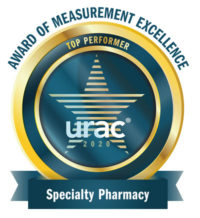 The state of Tennessee is beautiful on so many levels: our people, our natural resources, our great farmers, and top universities. We have so much to be grateful for and appreciate. But there are several significant challenges that strain our state, especially in the area of healthcare. My office recently conducted research that revealed our great state is ranked among the worst in the nation for life expectancy.[1] While the study covered broader topics such as business, education and finance, it was healthcare that showed the direst need for improvement, especially in areas of smoking, opioid abuse, lack of health insurance, and per capita healthcare spending.
The state of Tennessee is beautiful on so many levels: our people, our natural resources, our great farmers, and top universities. We have so much to be grateful for and appreciate. But there are several significant challenges that strain our state, especially in the area of healthcare. My office recently conducted research that revealed our great state is ranked among the worst in the nation for life expectancy.[1] While the study covered broader topics such as business, education and finance, it was healthcare that showed the direst need for improvement, especially in areas of smoking, opioid abuse, lack of health insurance, and per capita healthcare spending.
Below is a short synopsis of the information we uncovered, along with the steps already underway to address these challenges. I know the future of all Tennesseans rides on our efforts and I am confident we will succeed.
Smoking
It is sad to say, but Tennessee could be the poster child for the adage that smoking is bad for your health. Smoking increases the chance of stroke and heart disease by four times and the risk of lung cancer by 25%.[2] Tennessee ranks:
47th – Adult smoking rate
47th – Stroke
46 th – Lung Cancer
42nd – Heart Disease
It’s no wonder we rank 43rd in life expectancy. But smoking has costs us in other ways as well. Smoking-related healthcare costs for our state are estimated at $2.67 billion annually, with another $3.59 billion in lost productivity.[3] This is money that could be used to develop more jobs and improve our state parks, our infrastructure, education, and more. Instead, we’re spending the money on diseases that are preventable.
By reducing the rates of smoking, we could make a significant impact on the trajectory of our state, from one that is struggling to one that is thriving. But it requires more than just taxing tobacco products, although that has helped reduce smoking rates overall. One initiative gaining strong support is increasing the legal age for smoking and vaping from 18 to 21. Ninety-five percent of adult smokers say they started before the age of 21, and more than 350 children start smoking each day in our state.[4] Making it harder for children to obtain tobacco products can help prevent them from smoking in the first place. This was the impetus behind recent legislation we proposed that would have increased the legal age of smoking and vaping from 18 to 21. While the bill failed to pass in Tennessee, the movement is gaining momentum across the nation. As of today, 12 states and more than 450 localities have raised the legal age to purchase tobacco products to 21.[5]
I believe we will have some type of legislation in our state soon. Of the Tennesseans we surveyed, more than 71%—including tobacco farmers—support the move.
Opioid Abuse
Tennessee ranks second among all states in the number of opioid prescriptions written, enough to give every man, woman and child in our state a prescription each year, with one million prescriptions left over.[6],[7] Few communities throughout our state have escaped this deadly epidemic.
The battle against opioid abuse is more complicated than the struggle to reduce smoking. No amount of smoking is beneficial. But opioids do provide significant benefits for those suffering chronic and severe pain. While banning them entirely would certainly make a great impact, it would at the same time cause greater suffering for those in legitimate need of pain relief. It’s a challenge, but we are making progress.
We have recently passed legislation to restrict opioid prescriptions for “first-time and temporary uses” and to require ICD-10 codes for each prescription written for more than three days.[8] The goal is to both reduce the number of prescriptions overall and to be able to track and analyze where, how, why and from whom patients are receiving prescriptions. We have also approved new legislation that helps inmates combat addiction while in prison so that when they are released—as most are—they are more likely to lead a healthy, productive life. Other measures provide additional support for law enforcement who face the epidemic every day. More work is needed to drive down opioid use in Tennessee and I have proposed a new bill to address the previous legislation’s limitations.
Health Insurance
More than 700,000 Tennesseans are without health insurance. Even for those who are covered, personal out-of-pocket costs for deductibles and co-pays are too high and can lead many to delay or avoid needed care. When patients don’t have access to affordable, timely care, they are likely to get sicker. This leads to more visits to the emergency room and increased readmissions for chronic care conditions. Ironically, the high cost of healthcare works against itself by reducing outcomes and driving costs even higher.
While there are efforts at the national level to address the state of healthcare in the U.S., individual states aren’t waiting to take action. Currently, ten states are considering a Medicare “buy in” program where a person could pay an income-based premium to participate in the national Medicare program. There are still many details to be worked out, such as eligibility requirements, who would administer the plan, and even if the federal government would approve the program. Regardless, several states are currently conducting research to determine the feasibility of such a program. We will be watching closely the results of those studies to determine if Tennessee could benefit as well.
Healthcare Spending
In 2016, the national per capita spending for healthcare was $10,348, or $3.3 trillion overall.[9] Tennessee ranks 38th in healthcare spending annually. In an effort to increase access to affordable care in our state, we’ve applied for—and received—a Medicaid block grant of $8 billion from the federal government coupled with Tennessee’s $4 billion for a total of $12 billion. While this will be of great help to our efforts, the grant lacks flexibility in the way it can be used. This means some areas of need in our state may not get the full level of help they require. But we, along with other states, are taking steps to resolve this barrier. Our state commissioner of finance and administration, Stuart McWherter, will lead a healthcare task force this summer to develop a three, five, and seven-year healthcare roadmap for Tennessee. Having this plan will allow us to prioritize resources for areas of greatest need and impact potential.
An Eye to the Future
Understanding where we are is essential to building a roadmap to where we need to be. And while the journey won’t be easy, I am confident we can make faster, greater progress moving forward together. We aren’t going to wait for mandates and new programs to be handed down from Washington, D.C. We are taking the reins ourselves, working with other states and communities around the nation to create new, innovative solutions. Initiatives like increasing the age of smoking, employing stricter requirements around opioid prescriptions, increasing spending on addiction prevention, reducing costs, and expanding access to care through programs such as Medicare buy-in and block grants are just the start.
As long as we stay diligent, keep focused, embrace innovation, and stay positive, the future will be brighter for all Tennesseans.
[1] JAMA – The Journal of the American Medical Association – 2016
[2] https://www.cdc.gov/tobacco/data_statistics/fact_sheets/health_effects/effects_cig_smoking/index.htm
[4] https://www.tobaccofreekids.org/what-we-do/us/sale-age-21
[5] https://tobacco21.org
[6] https://www.cdc.gov/drugoverdose/pdf/pubs/2017-cdc-drug-surveillance-report.pdf
[7] https://www.tn.gov/opioids/about-tn-together.html
[8] http://wapp.capitol.tn.gov/apps/BillInfo/Default.aspx?BillNumber=SB2257&GA=110
[9] https://www.cdc.gov/nchs/fastats/health-expenditures.htm















